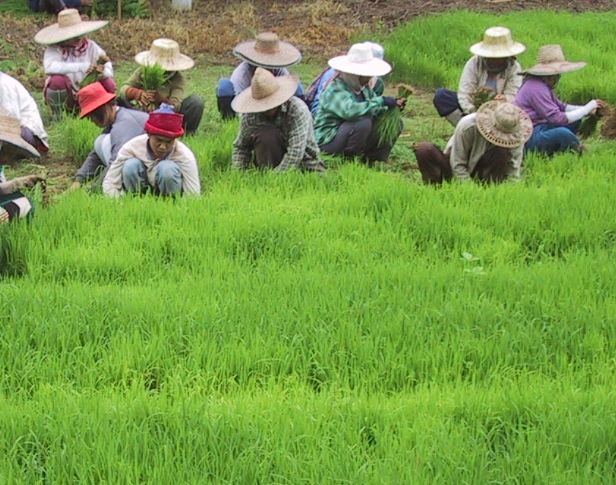Chris Baker has reviewed my new book, Thailand’s Political Peasants, for the Bangkok Post. Here are some extracts. The full review is available here.
[Ban Tiam], the subject of Thailand’s Political Peasants, is a community of 130 households in the west of Chiang Mai province. It is not a village in the old sense. The families grow rice, maize, and garlic, but they make most of their livelihood elsewhere. About a quarter have a business. Two-fifths do some work for government. A third have a family member working in Bangkok or farther afield. …These …. changes have converted villagers into what Walker terms “political peasants”. Prosperity has endowed them with new needs and aspirations.
Dealing with the power and patronage of the state is key to fulfilling those needs and aspirations. While Thai villagers were once believed to be remote from politics, and some imagine that still to be true, Walker is bent on exploding that notion for ever.
But the new rural politics has its own unique character. Walker suggests that a good way to understand this character is to appreciate how villagers deal with the gods and spirits that determine good and bad fortune in everything from health to harvest. These spirits must be seduced by offerings and flattered with rituals so that their considerable powers are tamed and directed to benign ends.
Bureaucrats, politicians and big agribusiness groups are much the same. They have powers that can either bring good or do harm. They must be seduced by offerings and flattered with rituals too. This means courting the locally powerful, but also becoming involved in electoral politics in the locality, province and nation.
“The central element in the political strategy of this middle-income peasantry is to weave the power and resources of the state into the economic and social fabric of village society.”
Walker borrows the term “political society” to describe the result. In contrast to “civil society” which is full of rules and institutions, political society is all about connections, manipulation, bargaining, deals, expediency – a kind of free-for-all, more like all-in wrestling than rule-bound Olympic boxing. …
Possibly the story would look a little different if told from the perspective of the northeast or the migrant communities of the capital or even Chiang Mai city. Possibly the term “peasant” is misleading. Possibly Walker focuses too much on economic variables to the almost complete exclusion of the cultural dramas of politics. But there is no doubt this book is a landmark that will be required reading for anyone trying to understand Thailand’s new politics, and a stimulus for debate and controversy for some time to come.
 Facebook
Facebook  Twitter
Twitter  Soundcloud
Soundcloud  Youtube
Youtube  Rss
Rss 